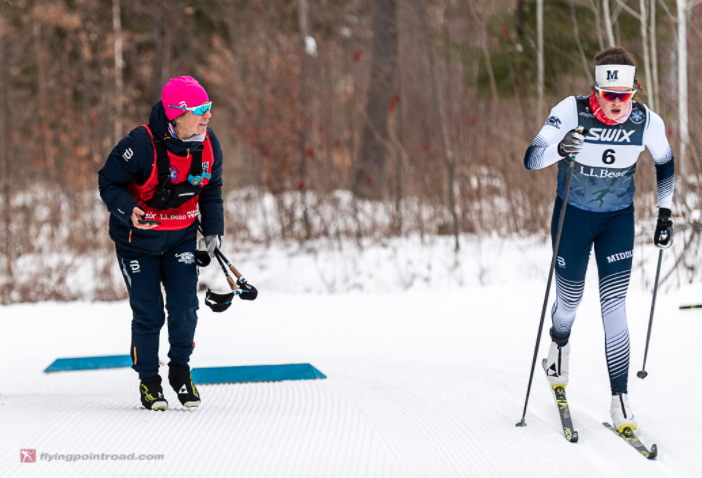
If you read FasterSkier, you are likely aware that elite cross country skiing in the U.S. has been steadily on the rise over the last decade. In the last four years alone, we’ve borne witness to medals at all levels, including a Diggins-Randall double podium in the freestyle sprint at the 2017 World Championships, a 10 k classic win for Gus Schumacher at the 2020 World Junior Championships, a bronze medals for Will Koch and Kendall Kramer at the Youth Olympic Games, and of course, the iconic gold medal winning team sprint of the 2018 Olympics. Our heart rates have climbed with the vicarious thrill of seeing American skiers earn a multitude of World Cup podiums, relay medals, and spots in sprint finals.
As the current US Ski Team lineup raises the bar for what’s possible on the World Cup, the next generation of skiers lays the foundation to build upon their accomplishments. See it to be it. Success breeds success. Pick your preferred phrasing.
Consequently, the talent pool tracking toward the national development program has been flooded like never before and U.S. Ski & Snowboard has stepped up its support in response.
“We have more junior and Under-23 athletes achieving the U.S. Ski Team standard,” explained sport development manager Bryan Fish in an email. “It is clear we are strengthening as a nation at our development ranks. This is reflected in awards such as the FIS Marc Hodler award where we were second only to Norway at 2020 Junior World Ski Championships after being a USA record-setting 4th in 2019. Hence, we have a growing USST D Team. This growing team needs more support and attention.”
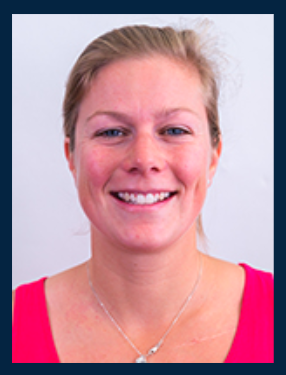
The most recent addition to the development program is former assistant coach at Middlebury College Kate Barton, who will lead the charge as Development and D-Team Head Coach. Barton will replace Bernie Nelson, who stepped down after the inaugural year of the position.
Fish explained that the restructuring and head coach position facilitates more direct and consistent support to D-Team athletes throughout the year. Barton will also have the capacity to work with developing athletes at events like the National Training Group (NTG) camp for top performers at Junior Nationals. Her role frees Fish up to focus his attention on development infrastructure, provide coach education at the club level, and other domestic tasks. He will still support Barton at domestic camps and at international events such as the World Junior Ski Championships and U23 World Championships.
Barton’s selection for the position was made with input from her predecessor, Nelson, and the roster of D-Team athletes, as well as from Cami Thompson Graves, head coach at Dartmouth College and Chair of the U.S. Ski & Snowboard Sport Committee. Barton received positive feedback and recommendation across the board.
Fish explained that he and Nelson had a strong working relationship and that although COVID-19 has interrupted the intended team schedule, Barton has seamlessly stepped into her new role, bringing her own set of strengths and skills to continue the support athletes have received within the new development program structure.
“Kate has worked in many national junior domestic camps and international development projects in the past, so she has a firsthand understanding of our ski community, development structure, team culture, and the standards necessary to be competitive at the international level,” wrote Fish. “I have worked alongside Kate over the past ten years at National Under-16 camps. She is positive, motivating, collaborative, organized, and has a great rapport with athletes and coaches, alike. These are critical qualities that will make Kate successful as the U.S. Ski Team Development and D-Team coach.”
FasterSkier connected with Barton via email to learn more about her background and philosophy as a coach and how she will translate that into her new role as D-Team Head Coach.
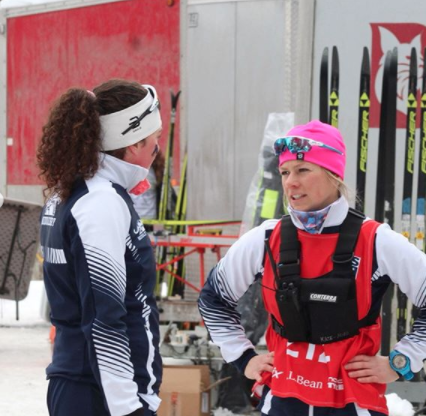
“Authenticity, passion, and principle provide a foundation for my philosophy as a coach and help to guide me,” wrote Barton. “I think it’s important to be authentic in your pursuits and be comfortable being yourself. Everyone is different and skiing is a unique, individual sport within the context of a team. If you can build strong relationships within a team then you can also trust and learn from one another and as a result, increase your chances of being successful.
“I am passionate about Nordic skiing; I love to ski,” she continued. “I want to cultivate a love for this lifelong sport in the athletes on our team. I think part of my job as a coach is to stoke this love for the sport, and for me, that comes from promoting a healthy balance between taking yourself seriously and having fun and enjoying the process. Finally, I think it’s important to be principled. I have to remind myself of this sometimes. But if you’re willing to be critical of yourself and others you can learn and move forward together. As a coach, I’m always trying to find a balance between providing direct feedback and maintaining the patience to let my athletes learn in their own time.”
Barton spent four years working with the Middlebury Program. Before returning to her alma mater in 2016, she was the head coach at Burke Mountain Academy in Vermont for five years. She also spent a year as the head coach of the Jackson Hole Ski Club in 2010.
An accomplished athlete in her own right, Barton graduated from Middlebury College in 2009 as a dual sport athlete in skiing and lacrosse. Demonstrating both talent and leadership potential, she made the NCAA championship team each of her four years and captained the team to an 8th place finish her senior year. In addition, she competed in two semifinal rounds of the NCAA Tournament in lacrosse.
Barton explained that these experiences were formative in her transition to coaching.
“Many of the lessons I learned from my time as a competitive skier were things not to do,” she wrote. “I competed in a variety of sports competitively growing up and was lucky enough to compete as a skier and a lacrosse player through college, two very different but valuable experiences. Most of all, I was lucky enough to be surrounded by some passionate, veteran coaches throughout my entire ski coaching career who were willing to let me tag along and soak up experiences, but who also pushed me to be independent and take on roles outside my comfort zone.”
Through coaching three U18 National Teams at the U23 World Ski Championships as well as for Team New England at Junior Nationals and working at U18 national and regional summer camps, Barton has had the opportunity to work with many of the D-Team athletes. She has also coached at multiple international junior trips to Norway and Sweden.
“One of the coolest things about the ski world is how small it is, and even if I haven’t worked with all of these athletes directly, I’ve been watching them compete for many years. I remember observing this crew race a humid uphill TT at U16 camp many years ago. Even as U16 athletes, it was crystal clear how willing and genuinely excited they were to push limits and grow together, all while having a good deal of fun.”
The athlete she has had the most experience working with is newly nominated 20-year-old Sophia Laukli, who currently attends Middlebury College.
“I’m lucky to be sharing my rookie season with Sophia and I’m excited for the challenge of getting to know a couple of new faces as well.”
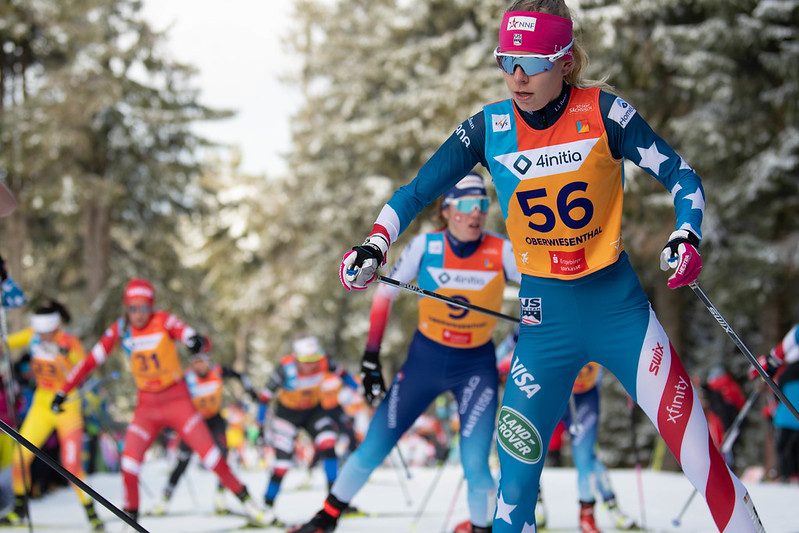
The 2020-21 D-Team has a record 11 members. Both Fish and Barton commented on the goals for the program as they work together to support these athletes and continue to foster the national development program.
“‘Working together’ are the keywords here,” responded Fish “We have athletes with the desire, work ethic, and skills to succeed at the highest level of our sport. These athletes have a good understanding of what they need to be successful. This is thanks to our strong clubs, school programs, and strong divisional/ regional support. Kate and I both have a strong background coaching at the club and collegiate ranks, so this will aid in working with these athletes and their local programs to support their individual needs.
“It all starts with the question to the athletes and programs as how can we best support? What can we provide in addition? One common goal is that we continue to build upon the strong USA Team culture that we are bringing to our international trips each year. It is a huge asset when you know your teammates are contributing to your success and have your back. We will need to be creative in continuing to develop our team culture when working together in summer projects is a challenge.”
Barton’s response focused primarily on laying the groundwork for successful coach-athlete relationships, which she identifies as learning about each of her athletes individually and establishing a relationship. This requires collaboration and communication with both the athlete and their club or collegiate coach.
“As a new member of the team, the most important thing is to start to get to know this crew as athletes and as people. I want to coach this team in a way where they get to know me, too. We haven’t had a chance to work together in person yet, given the current state of the world, but I hope we’re starting to build relationships that will make our work at future training camps and competitions more enjoyable and productive. This job has already been rewarding because of the work I get to collaborate with the club coaches of each of these athletes. I’m excited to serve as a resource for any coach willing to get on board and help to push U.S. skiing forward.
“I am most looking forward to the opportunity to learn first-hand from this group of athletes,” she continued. “The D-Team is a special group of motivated individuals. They are stoked to continue to push US skiing forward. I can’t wait to see how they do it, to help them pursue their goals and dreams, and of course to provide some guidance and share my knowledge and experience along the way.”
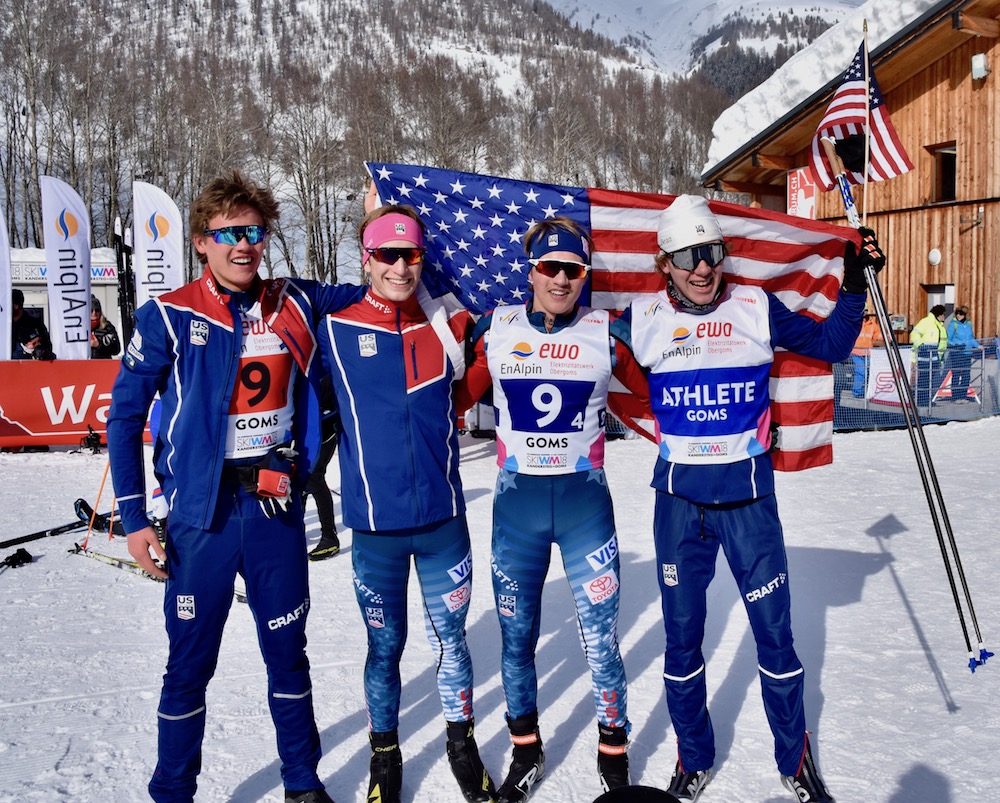
Finally Barton was asked the challenging question regarding how to best support the mental and physical wellness of athletes who are navigating the pressures that come with elite level sport at a young age. In addition to the stress of training, many of the D Team athletes are also balancing academic demands on top of their training while facing significant transitions in their lives as they advance from high school through college.
“I think relationship building is our most important tool. My most successful coaching relationships have always been built on open and honest communication. I hope to build this culture within the D Team and beyond. We’ll try to break down the stigma that we have to wait until we’re in a time of need or crisis to ask for help. This community is incredibly supportive and there are many resources to help facilitate athlete development. My goal is to get to know a wide variety of young athletes in the US and to help them balance those demands and stressors they face as developing athletes. I don’t believe any of the athletes on the D Team are as fast (yet!) as they need to be, as they want to be, or as they can be, so I hope we’ll work together to build a good foundation on which to continue to develop. We will focus on the process and not just our performance because everyone fails a few times on their way to greatness.”
Rachel Perkins
Rachel is an endurance sport enthusiast based in the Roaring Fork Valley of Colorado. You can find her cruising around on skinny skis, running in the mountains with her pup, or chasing her toddler (born Oct. 2018). Instagram: @bachrunner4646



